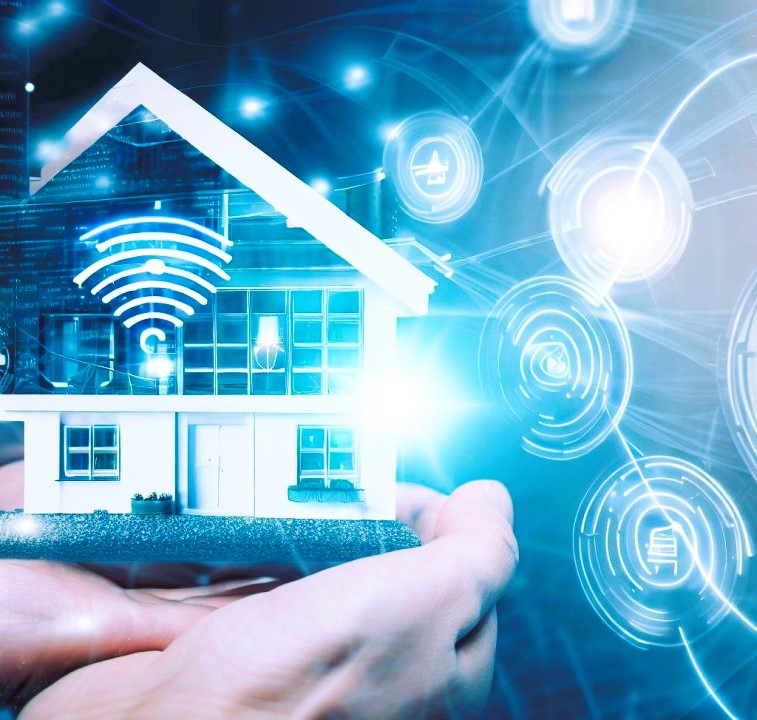Smart home technology has transformed the way we interact with our homes, providing convenience, energy efficiency, and improved comfort. In the realm of heating systems, advancements in predictive algorithms and machine learning are shaping the future of smart home heating. By leveraging data, analyzing patterns, and making intelligent predictions, these technologies offer enhanced energy savings, optimized comfort, and reduced environmental impact. In this article, we will explore the future of smart home heating and the role of predictive algorithms and machine learning in shaping this evolving landscape.
- Predictive Algorithms in Smart Home Heating
Predictive algorithms utilize historical and real-time data to make informed predictions and optimize heating patterns. These algorithms take into account factors such as weather conditions, occupancy patterns, and thermal characteristics of the home. By analyzing and understanding these variables, predictive algorithms can anticipate heating requirements and proactively adjust settings to optimize energy consumption and comfort levels.

- Benefits of Predictive Algorithms in Smart Home Heating
- Energy Efficiency: Predictive algorithms help maximize energy efficiency by optimizing heating patterns based on real-time and historical data. By considering external factors such as weather forecasts and internal factors such as occupancy patterns, these algorithms can anticipate heating needs and adjust settings accordingly. This proactive approach minimizes energy waste and reduces heating costs.
- Improved Comfort: By analyzing occupancy patterns, predictive algorithms can optimize heating schedules to ensure that rooms are heated to the desired temperature when occupied. They can learn user preferences and adapt to individual comfort needs, providing a personalized heating experience. This results in enhanced comfort and eliminates the need for manual adjustments.
- Reduced Environmental Impact: Optimized heating patterns driven by predictive algorithms lead to reduced energy consumption, resulting in a smaller carbon footprint. By minimizing energy waste and using resources more efficiently, smart home heating systems contribute to a greener and more sustainable future.
- Machine Learning in Smart Home Heating
Machine learning algorithms are a subset of artificial intelligence that enable systems to learn and improve from data without explicit programming. In the context of smart home heating, machine learning algorithms can analyze vast amounts of data, including historical energy usage, occupancy patterns, and weather conditions, to develop sophisticated models and make accurate predictions. Presence sensors, how they affect the heating in the house.
- Benefits of Machine Learning in Smart Home Heating
- Adaptive and Self-Learning: Machine learning algorithms continuously adapt and improve their predictions based on new data. They can learn from occupants’ behaviors, preferences, and feedback to refine heating schedules and optimize energy consumption. Over time, these algorithms become more accurate and tailored to individual needs.
- Real-Time Optimization: Machine learning algorithms excel at real-time data analysis. They can quickly process incoming data, such as changes in occupancy or unexpected weather conditions, and adjust heating settings accordingly. This real-time optimization ensures optimal comfort and energy efficiency at all times.
- Anomaly Detection: Machine learning algorithms can identify anomalies or deviations from normal heating patterns. This enables early detection of system malfunctions, leaks, or abnormal energy consumption, allowing for timely maintenance and troubleshooting.
To learn more about energy efficiency standards and regulations in Canada, you can refer to the official websites of the Government of Canada: Wikipedia – Energy Efficiency in Canada.
- The Role of Data Privacy and Security
With the integration of predictive algorithms and machine learning, the collection and analysis of personal data become crucial. Homeowners must prioritize data privacy and security when implementing smart home heating systems. It is important to work with reputable manufacturers and service providers that adhere to privacy regulations and implement robust security measures to protect personal information.

- The Path to a Smarter Future
The future of smart home heating lies in the convergence of predictive algorithms, machinelearning, and advanced data analytics. As technology continues to evolve, we can expect even more sophisticated smart home heating systems that seamlessly integrate with other smart devices and offer a truly interconnected and intelligent home ecosystem.
To fully harness the potential of predictive algorithms and machine learning in smart home heating, ongoing research and development are essential. Collaboration between manufacturers, researchers, and regulatory bodies is necessary to ensure the advancement of energy-efficient and secure technologies. Standards and guidelines play a crucial role in promoting interoperability, data privacy, and consumer protection.
In conclusion, the future of smart home heating is driven by predictive algorithms and machine learning. These technologies enable optimized heating patterns, energy efficiency, and personalized comfort. By leveraging data, analyzing patterns, and making intelligent predictions, smart home heating systems will continue to evolve, offering homeowners in Calgary and beyond greater control, convenience, and sustainability.
